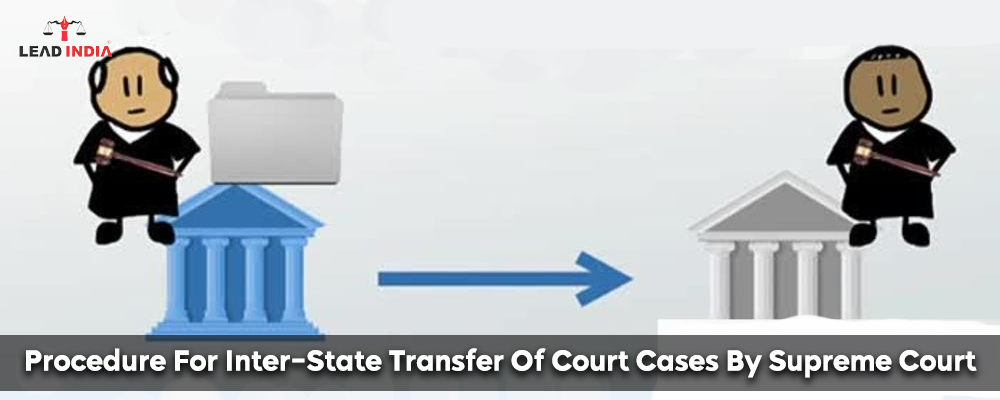When interacting with parties to a dispute, the court must remain neutral. Thus, in accordance with the Code of Civil Procedure 1908, the defendant must appear before the court and file a written declaration objecting to the plaintiff’s complaint when the plaintiff files a case in the place of their choice. The court must first address the jurisdictional question if the defendant raises doubts about the court’s authority based on provisions included in the Code of Civil Procedure 1908.
The inter-state transfer of court cases by supreme court must be conducted for the transfer of the lawsuit within states in accordance with the procedures if it finds that it lacks jurisdiction.
Need A Legal Advice
The internet is not a lawyer and neither are you. Talk to a real lawyer about your legal issue

Grounds For Inter-State Transfer of Court Cases by Supreme Court
Putting an End to Injustice
It is the court’s highest responsibility to take all necessary steps to achieve justice and to provide a verdict that will positively impact society by demonstrating that justice was not only carried out but also done so with sufficient impact. Given the strong implications of this justification for upholding the law, it seems to reason that this authority would possess a great deal of discretionary power.
Limited Jurisdiction
The court’s jurisdiction over the dispute’s subject matter is limited. In cases involving shared or limited jurisdiction, the court trying the case may conduct inter-state transfer of court cases by supreme court with the authority to try the matter definitively, preventing the trial from failing for lack of complete jurisdiction.
Collision Between the Parties
The judicial community is accustomed to the prospect of corruption. In these situations, the court gives the party who might be concerned a reasonable chance to voice their concerns in order to prevent the true aggrieved party from losing out to the other litigants.
Contravention to Natural Justice
When the natural justice standards are being violated by the court or any other judicial authority. If such a breach occurs again after being reported to the appropriate authority, the party that was wronged is free to seek refuge and a preferential inter-state transfer of court cases by supreme court.
File Inter-State Transfer of Court Cases by Supreme Court
Section 25 of the Code of Civil Procedure 1908 gives the power to file Inter-State Transfer of Court Cases by Supreme Court. The authority and process described in the relevant section are as follows:
Application for Transfer
Any of the parties involved may file an application, and in response, the authority to transfer suits or processes under Section 25 CPC may be exercised. This implies that any party involved in the case may petition the Supreme Court to move a lawsuit or other legal action within the state.
Notice and Hearing
Following the filing of such an application, all parties to the case must receive notice from the Supreme Court. The court will review the case after giving both sides a chance to voice their complaints and reasons.
Reasons for Transfer
The Supreme Court has the authority to order a transfer if it determines that doing so will expedite the pursuit of justice. This implies that the transfer ought to enhance the possibility of a fair and equitable case resolution while maintaining adherence to the principles of justice.
Interstate Jurisdiction
The main goal of Section 25 CPC is to make it easier for matters to be transferred between Indian states. When it is thought necessary for the purposes of justice, it permits cases to be transferred from the jurisdiction of one Court or Civil Court to another Court or Civil Court within the state.
The Supreme Court’s interstate case transfer process is a crucial element of the constitutional framework that promotes equal treatment for every individual. The Supreme Court’s method for transferring cases across state borders upholds the rule of law, encourages judicial unity, and enhances the judicial system’s effectiveness.
One can talk to a lawyer from Lead India for any kind of legal support. In India, free legal advice online can be obtained at Lead India. Along with receiving free legal advice online, one can also ask questions to the experts online free through Lead India.





 Talk to a Lawyer
Talk to a Lawyer